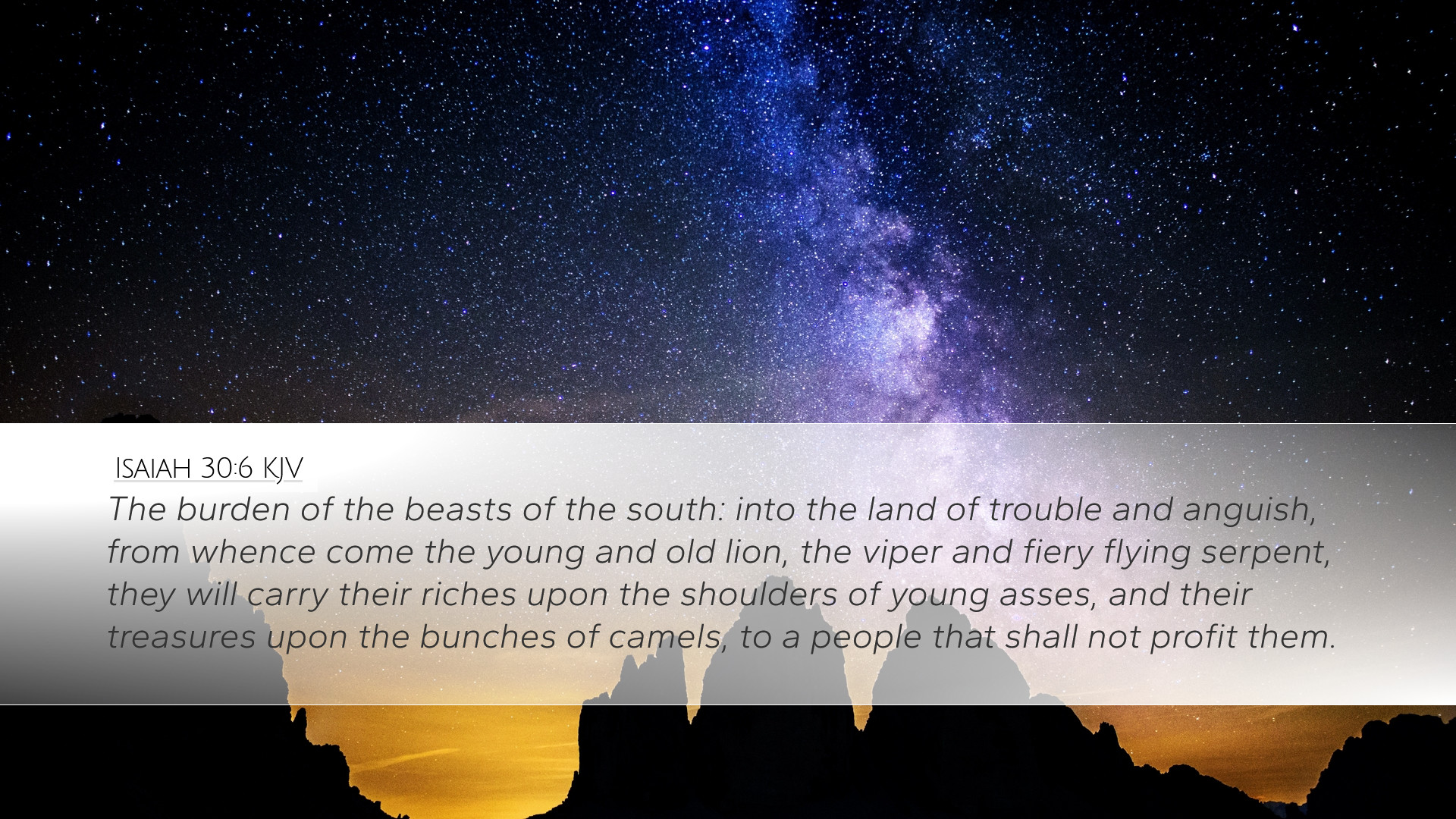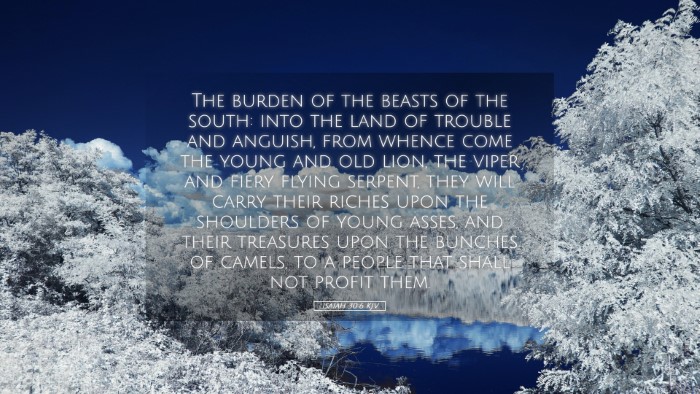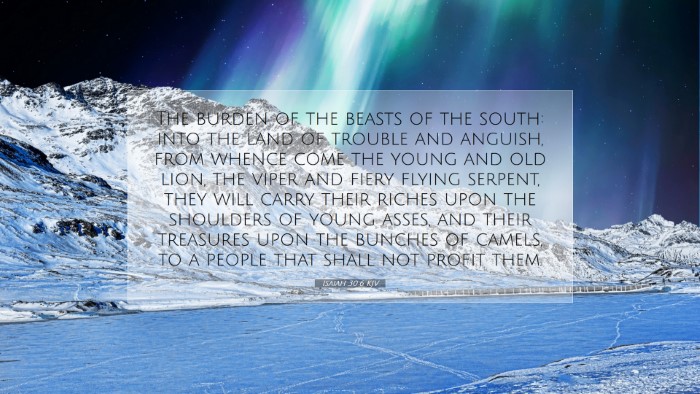Commentary on Isaiah 30:6
Verse: "The burden of the beasts of the South: into the land of trouble and anguish, from whence come the young and old lion, the viper and fiery flying serpent, they will carry their riches upon the shoulders of young asses, and their treasures upon the bunches of camels, to a people that shall not profit them."
Introduction
This verse serves as a profound reflection on the folly of relying on foreign nations for help, particularly Egypt, amidst the tumultuous circumstances facing Israel and Judah. The imagery employed highlights the dangers and the ultimately fruitless efforts of those who turn away from God’s guidance.
Exegesis and Analysis
Isaiah 30:6 presents a rich tapestry of metaphors illustrating the futility and risk of seeking protection and prosperity through alliances with foreign powers. Here we delve into several commentaries to illuminate the depth of this scripture.
Matthew Henry's Commentary
Matthew Henry notes that the phrase “the burden of the beasts of the South” suggests an impending threat and conveys the weight of a prophetic warning. He underscores that the “beasts” represent those who are forced to carry burdens that signify both material wealth and spiritual misguidance. He emphasizes the idea that turning to Egypt (the South) for help will not only lead to physical tribulations but also spiritual despair.
Symbolism of the Beasts
Henry elaborates that the “young asses” and “camels” symbolize the means by which the Israelites would transport their riches to Egypt—a futile endeavor against the backdrop of God’s sovereign plans. The “young ass” is a creature known for its burden-bearing capacity, but it signifies the weakness of human efforts when divorced from divine aid.
Albert Barnes' Commentary
Albert Barnes provides insight into the specific locations referenced in this verse. He elucidates the context by pointing out that the animals mentioned signify the arduous journey undertaken to seek assistance from those who are not capable of providing deliverance. The “viper and fiery flying serpent” serve as representations of inherent dangers connected with the land to which they turn for aid.
Critique of Unwise Alliances
Barnes emphasizes that Israel's reliance on Egypt reflects a deeper spiritual malaise—trusting in flesh and blood rather than the Almighty God. He cites that such allegiances, motivated by human wisdom, result in disappointment and anguish. Instead of fostering a genuine relationship with God, this action leads to further strife.
Adam Clarke's Commentary
Adam Clarke further develops the imagery by examining the animals mentioned, stating that they represent a variety of characteristics where both danger and helplessness converge. The inclusion of lions and serpents suggests the danger that lies in misplacing trust and the gravitas of the situation.
Economic Ramifications
Clarke notes that the “riches” mentioned carries a dual meaning: not only do they refer to material wealth, but also to spiritual investments made in trusting the wrong sources. Clarke encourages readers to reflect on the consequences of evaporation of resources and wisdom derived from misunderstanding God’s plan, urging alignment with divine promise rather than worldly strategies.
Theological Implications
This text raises pivotal questions about faith, reliance, and the inherent risks of pursuing human solutions to spiritual problems. The overarching theme speaks to the nature of God's sovereignty over human affairs, and the dangers of apathy towards divine instruction.
Human Efforts vs. Divine Assistance
A consistent theme across the commentaries is the dichotomy between human efforts and divine intervention. The call is clearly for impeccable faith in God as the ultimate Redeemer amidst chaotic circumstances.
Applicable Lessons for Today
For pastors, students, and theologians, the insights drawn from Isaiah 30:6 implore believers to continually assess where their trust lies. In a contemporary context, reliance on political entities or material wealth can distract from an authentic relationship with God. This passage serves as a reminder that true strength comes from an unwavering faith in the Lord, cautioning against the ideologies that compel us toward worldly wisdom.
Conclusion
Isaiah 30:6, when combined with insights from historical commentaries, underscores a timeless truth about the nature of reliance and trust. It challenges the faithful to reassess their allegiances and invites them to anchor their hopes in divine promise rather than fleeting human securities.
May this commentary serve to reinforce a deeper understanding of this passage, highlighting the importance of spiritual discernment in the face of worldly pressures.


